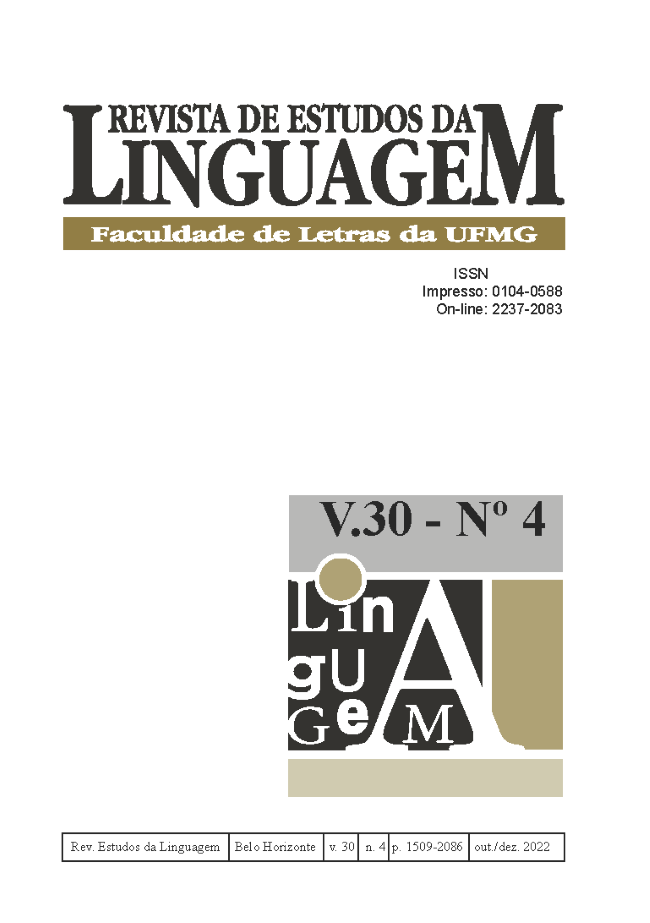A gradação em português brasileiro e a variação translinguística na expressão da comparação
DOI:
https://doi.org/10.17851/2237-2083.30.4.2015-2042Palavras-chave:
Semântica, Universais Semânticos, Modificadores Graduais, Orações ComparativasResumo
O artigo discute a hipótese dos parâmetros para expressão da comparação e das construções graduais analisando dados do português brasileiro (PB). Beck et alii (2009) e Beck, Oda e Sugisaki (2004) estipulam três parâmetros: i) a língua tem predicados graduais (DSP – Degree Structure Parameter); ii) a língua tem ligação de variáveis na sintaxe (DAP -Degree Abstraction Parameter); e iii) a língua tem a posição sintática de grau preenchida (DegPP – Degree Phrase Parameter). Línguas com marcação negativa no DSP não exibem qualquer construção gradual, enquanto as marcadas positivamente exibem uma variedade de construções graduais, especialmente comparativas tradicionais com algo semelhante a “mais”. O DAP dá conta de estruturas que envolvem ligação de variáveis de grau na sintaxe, como comparativas que exibem ambiguidades de escopo. Por fim, também há a impossibilidade de se preencher o argumento de grau dos adjetivos com sintagmas de medida (cf. *2 metros alto), um fato explicado pela marcação negativa no DegPP. Mostramos que o PB recebe marcação positiva nos dois primeiros parâmetros e negativa no último. Discutimos estruturas interrogativas graduais, bem como sintagmas de medida como 2 metros de altura. O artigo conclui que essas estruturas precisam ser melhor discutidas para entendermos sua relação com os parâmetros.





